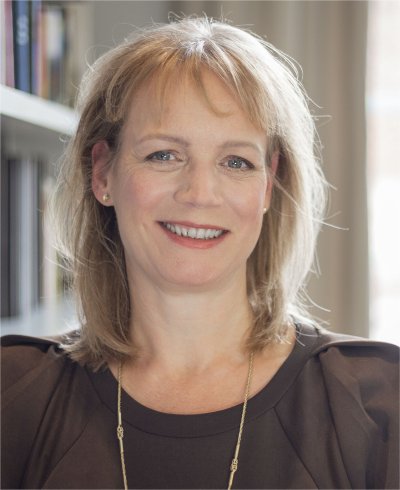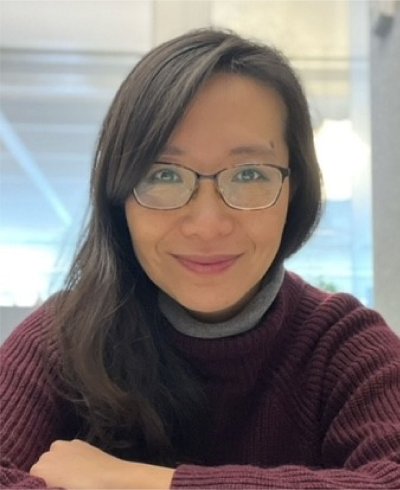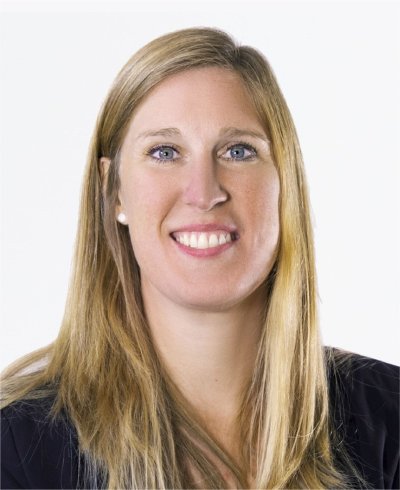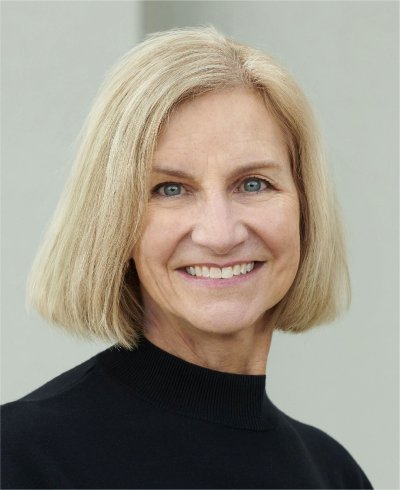Pharming Celebrates International Day of Women and Girls in Science - February 11
On February 11, Pharming celebrates the International Day of Women and Girls in Science, which was first declared by the United Nations in 2015 to promote the full and equal access to, and participation of, women and girls in Science, Technology, Engineering and Mathematics (STEM) fields. The day promotes the role of women in scientific fields, promoting those already successful in the field, and aims to inspire more women and girls to pursue careers in science.
We spoke with four leaders within our business, Mireille Sanders (Chief Operations Officer), Zhen Liu (Director Alliance Management), Addy van Dijk (Senior Director CMC management) and Heidi Memmott (Director Medical Science), to understand their perspective on their careers, what inspires them and the advice they would give to others entering the field.
Scroll down to read more.
As a growing company, Pharming is continuously looking for highly talented and motivated individuals to join our team. Are you ready to take on a new, exciting career opportunity? Check out our vacancies on careers.pharming.com or send an open application to vacatures@pharming.com
Mireille Sanders - Chief Operations Officer (COO)
What drew you to pursue a career in a scientific field? And what has your career journey been like? Has it always been linear?
The common denominator is having people around me that said: “I believe in you”. It started with my parents and then my high school chemistry teacher, my university professor, the lead of the product team at Organon, and my (male) managers followed. But the most important thing is that my husband believes in me (we met just before I started at the Technical University) and he has – over the years – given me the space to grow.

My career has been characterized by “going in breadth not in depth” (“ik ben een grazer geen graver”). It started at university where I realized I was never going to be a hardcore scientist and my professor encouraged me to pursue a career in industry.
At one of my first stops, Organon, I went from solids to sterile development and had the opportunity to move to the United States. Later, as the CMC lead for a product called asenapine, I had broad responsibility for drug substance and product development – including analytics and packaging – and was a member of the team responsible for the full product development and commercialization. After this project management role, I started in my first big line management role, leading a pilot plant facility.
From big pharma players – Organon, Schering Plough, MSD and Janssen Pharmaceutics – I landed at Pharming as Senior Vice President Operations where I got a much deeper insight into what is needed to run a company. I am now Chief Operations Officer and a member of the Company’s Executive Leadership Team and have broad responsibility ranging from preclinical research to all the activities related to the physical product, as well as development through commercial manufacturing and distribution. Regardless of where I have been, or my role, I enjoy leading people with different professional backgrounds and from different cultures.
In my career there were two moments where the curve was not linear and instead my learning was increasing very quickly. In both cases, people who believed in me helped me to see opportunities and supported me to pursue them.
What is your best professional achievement?
For me, there are so many achievements that I’m proud of and they aren’t always what we may consider “big”. Supporting my teams so that they and the Company can be a success is one such achievement. Encouraging my teams to go out of their comfort zone is important. As scientists, we move boundaries and work together to accomplish great things for patients and our Industry. And, in my way, I facilitate that.
What has been your most difficult professional challenge and how did you overcome it?
In early 2014, it was announced that my department would become redundant. I was leading the pilot plant facility for MSD. Over a period of two years, we had to phase out the activities.
It was during this time that we lost people due to illness, there was also the profound loss of a colleague and her family, as well as health challenges with immediate family members.
With everything coming to a head, both personally and professionally, the challenge was learning how to keep people motivated to continue to produce medicines for our patients, all the while knowing that the department would be made redundant.
Being empathetic and asking my team how I could support them is what helped me overcome these challenges, and people supported me in my personal challenges. I built such strong connections during this time, many of whom helped me or are still helping me at Pharming or as a consultant or as a contract manufacturer.
What advice would you give a young woman just entering the field?
I have two pieces of advice:
1) Develop yourself as broadly as possible early on, so you can explore where your heart takes you. As you advance in your career, it might become more difficult to switch to other areas that you find interesting. Don’t try to speed up your career, some things you will learn with time.
2) You (as a family) determine how you can best balance your work and life; don’t give this task to the people around you. Together with my husband, we found the right balance in our lives, but finding that balance has been specific to our situation.
What advice would you give a woman in a leadership position? How can you best motivate and inspire the younger generation entering the scientific field?
Find a company where you can be your authentic self; it helps you to stay close to yourself and develop your strengths. Don’t become the person that others want you to become. You can be strong and vulnerable at the same time; they are not mutually exclusive.
The best motivation and inspiration in any Company is having the courage to tell your story. By being open and vulnerable you can plant seeds with the younger generation. It will then be up to them to decide how or if they will water them. The way that each of those seeds will grow will be different for each person, but it is no less exciting to be part of.
There is real power in that and I hope that young leaders, especially women, will see that.
What motivates you in your job?
For me, there are two important drivers.
The first is adding value. Early on in my career, it was clear that I wanted to add value by developing medicines for patients. I thought that adding value would involve drug discovery, but what I later realized is that my strength lies more in drug development.
Working in the life sciences industry has become even more important to me over the years as my husband suffers from a rare liver disease with no specific medicine approved for his treatment. His rare diagnosis was part of the catalyst for joining Pharming as we are developing drugs for unserved rare disease patients.
The second is the people I work with. Caring and collaborating for me, personally, is very important. These are also two of the core values of Pharming.
And what is most exciting thing about science for you?
The exciting thing about science is that there are so many opportunities in this field and ways in which you can add value to society. Science is the basis for our existence, and it is developing all the time. So, whether you are a specialist or more a generalist like me, it is never dull!
Zhen Liu - Director Alliance Management
What drew you to pursue a career in a scientific field? And what has your career journey been like? Has it always been linear?
My career journey has been a journey of exploring possibilities driven by intrinsic curiosity, not linear planning. After two years of a post-doc position at the Dutch Cancer Institute, I realized that I was not ready to pursue an academic career as my life-long career. I moved to a small start-up at the Amsterdam Medical Centre as Head of Lab Operations where I got a basic understanding of startup operations. While upgrading the lab to certain quality standards, the acronym “GMP” – meaning Good Manufacturing Practice – got my attention.

I wondered what it was and wanted to learn more. This curiosity led me to my role as a QC scientist at Pharming. The QC experience made me aware that my personality is better suited for my current role as Director Alliance Management at Pharming, finding my purpose as an alliance management professional in the world of business development. I enjoy driving collaborations to maximize value in any partnership with solution-mindedness and thoughtfulness.
Looking back at the journey, I must admit that I am a curious cat with enjoyable adventures.
What is your best professional achievement?
My best professional achievement is the successful collaboration with Novartis for the in-licensing of leniolisib. This success was marked by the FDA approval of leniolisib, and, more importantly, the collaboration made Pharming a sound and solid partner of choice for any future partnership, building our reputation as a company that delivers while also making an impact!
What has been your most difficult professional challenge and how did you overcome it?
The most unforgettable challenge has been surface conflict and resolving conflict between partners, as it’s human nature to prefer avoiding conflict. My tool to surface conflict is to be empathic. Empathy gets partners connected and makes them feel valued.
What advice would you give a young woman just entering the field?
My advice to any young woman is to read the book, “The 5 Graces of Life and Leadership” by Gary D. Burnison. This book was a gift from a very important mentor in my life and taught me more about the five graces: Gratitude, Resilience, Aspiration, Courage, and Empathy.
What motivates you in your job?
What motivates me in my job is working together towards a goal with a fun team and learning from each other. I am very lucky to have such great colleagues who are very smart and full of humor.
And what is most exciting thing about science for you?
The most exciting thing about science for me is the journey I am on to discover and understand the unknown and to translate the unknown to a medicine, serving the unserved patients.
Addy van Dijk - Senior Director CMC management
What drew you to pursue a career in a scientific field? And what has your career journey been like? Has it always been linear?
It started in high school when I was more drawn to the so-called beta classes such as chemistry, biology and science. When I looked for a university degree, I was happy when I found that perfect combination of chemistry and biology in the study of pharmaceutical science. Studying how chemical compounds or other types of compounds can positively influence the human body has always inspired me. After finalizing my master’s degree, I continued into a PhD program after which I moved into the pharmaceutical industry specializing in Chemistry, Manufacturing and Control (CMC) and drug development.

The CMC department is responsible for producing the actual product which is used by the patients. I have worked on multiple CMC programs at several companies, from clinical to commercial phase as a Senior Scientist Pharmaceutics, a CMC lead, a CMC Director and a Senior CMC Director. The CMC programs have consisted of small molecules and oligonucleotides through oral and alternative delivery routes.
I love the vigorous scientific discussions with the CMC teams. Being able to make the right choices and then leading to a very tangible outcome with an actual product in your hands. The output of all the hard work that can help patients in need.
What is your best professional achievement?
My proudest moment to date is getting commercial approval of leniolisib in the US as the CMC lead.
What has been your most difficult professional challenge & how did you overcome it?
A big part of working in science and the pharmaceutical industry is accepting that a project can fail. If you work in drug development, a lot of products will not make it to the commercial phase. When that happens, you need to deal with that disappointment and not perceive those years as wasted. From every project you will grow and learn, which will tremendously help the next project that hopefully does make it to the final stage. I have worked on multiple projects like this and will most likely work on projects like this for the rest of my career. Disappointment is part of it, but that makes the gratification, when it does all come together, all the greater.
What advice would you give a young woman just entering the field?
My advice would be to try to find a spot where you can truly be yourself so that you create an environment for yourself and for the people around you to be able to reach your highest potential. Have an open and inclusive mind and be curious, as there is so much you can learn from other people and by truly listening to other perspectives. This will allow you to keep on growing as a person at work, but also in your personal life.
What motivates you in your job?
Strong personal motivation for me is finding the sweet spot with a CMC team, or any team for that matter, when a mix of different personalities, backgrounds and knowledge come together and are able to elevate each other to a higher level. When you reach that sweet spot, you can move mountains while having a lot of fun at the same time.
Heidi Memmott - Director Medical Science
What drew you to pursue a career in a scientific field? And what has your career journey been like? Has it always been linear?
Math and science have always come easy for me, and as Pharmacy incorporates both fields, it was a logical choice, where I can apply the specialized knowledge of drug therapies to help people in need. I started out as a hospital pharmacist and then practiced as a clinical pharmacist in managed care. I never saw myself working in the pharmaceutical industry, but once I took the leap, I loved the unique opportunities and challenges. Over the years, I have enjoyed mentoring pharmacy students and volunteering for local Women in Math & Science events.

What is your best professional achievement?
During my 28 years in Medical Affairs, I have participated in the launch of nine new drugs. Helping to bring life altering therapies to people in need feels incredibly rewarding. I have supported therapeutics ranging from agents for common disorders like high blood pressure to drugs for rare diseases.
What has been your most difficult professional challenge & how did you overcome it?
A big part of my role is presenting scientific data, so public speaking is a required skill. Early in my career, I gave a couple of very bad, awkward presentations and almost quit. Instead, I joined a local Toastmasters group, participated in speaking courses, and now I practice with my female colleagues before delivering presentations.
What advice would you give a young woman just entering the field?
I have lots of advice! Believe in yourself! Don’t let anyone tell you that you can’t do something! Be open to new opportunities! Support other women so we can help the next generation of women move forward!
What motivates you in your job? And what is most exciting thing about science for you?
I am motivated by 1) knowing that what I do every day helps people live better lives and, 2) having a job which allows me to continually learn new information. The most exciting thing about science is that it is always moving forward and will create the next cutting-edge therapy for treating and even curing diseases.
